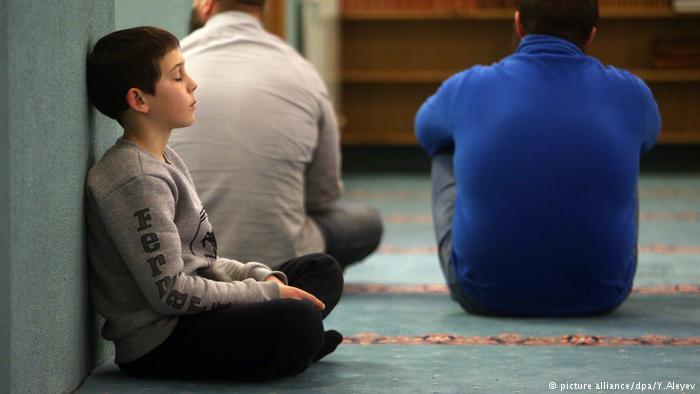I have a child with Autism. He is 11 years old now, attending a special school. He does not really speak.
Obviously he does not fast in Ramadan or does any ibadah (or well, I haven’t told him to try fasting as I am afraid he would get upset and maybe even violent).
Do you have any advice on how to help him enjoy Ramadan despite his case?
Answer
In this counseling answer:
•To draw out your son’s sense of things related to fasting, you have to craft a lesson that speaks directly to his ways of hearing things, of interacting with you, and of learning.
•The most important part of this process is that it is his process, not yours. You are just the facilitator, the catalyst.
•You have to figure out how he will understand the info.So, to use this situation of fasting as an example, you want to teach him first what fasting is all about as an idea. It is about learning self-control. You do not want him to fast, yet.
•It is important to tell him that we eat before sunrise and after sunset so that we stay healthy and don’t starve—that the idea of fasting is self-control and not to damage our health.
As-Salaamu ‘Alaikum,
This is a very hard question for me because I have little knowledge of how to work with autistic children, specifically. It sounds like your child’s case of autism is pretty hard to deal with because he does not talk.
I feel confident of two things: you have come to know how to understand and communicate with your child in ways that other people do not know, and autistic children need the same kind of love and respect that any human being need. So, I will answer your question from those points of view, in sha’ Allah.
When trying to teach anyone anything, it is important to remember that the word education comes from the Latin word edu-care, which means to draw out.
Now, that idea – the idea that education is drawing out and not putting in – goes directly against our modern working reality of how we educate people.
We try to put stuff in them. But, if you think about it, no one can ever really put stuff in other people in order for them to really retain it, i.e., for it to become a living reality in them as part of their knowledge base and life, unless that something resonates with them.
Our sense is regulated by many things, but I am going to mention two: our fitrah or human nature (our survival mechanism, sex drive, need for love, etc.), and our worldview (our cultural upbringing and our personal family’s style of processing feelings and ideas. You know the answers to those questions.

So, to draw out of your son his sense of things having to do with fasting. You have to craft a lesson that speaks directly to his ways of hearing things, of interacting with you, and of learning.
The most important part of this process is that it is his process, not yours. You are just the facilitator, the catalyst. You have to figure out how he will understand the info.
So, to use this situation of fasting as an example, you want to teach him first what fasting is all about as an idea. It is about learning self-control. You do not want him to fast, yet.
You want him to understand the concept of fasting. So, find something similar to it in principle (self-control) that he is already doing so that he can process the idea of fasting by identifying it through comparing it to something he already does that is self-control. Then it will resonate with him.
Check out this counseling answer:
For example, he may have to wake up when he does not want to. That is pushing yourself to do something that your body does not want to do.
Or not eating too much ice cream, or finishing your homework when you want to go to sleep. Anything that takes you out of your comfort zone in terms of your body’s needs should resonate with the idea that is behind fasting.
It is important to tell him that we eat before sunrise and after sunset so that we stay healthy and don’t starve—that the idea of fasting is self-control and not to damage our health.
Then, half of your job is done. The other half is him finding his way on the subject.
He has to figure out for himself, within himself, how much fasting he can handle—if any. But, at least you have introduced the idea to him in a way that is relevant to his needs and his world, not just told him to do it.
Here is a nice article from a mother with Autistic child. It might benefit you.
May Allah (swt) make it easy for you!
***
Disclaimer: The conceptualization and recommendations stated in this response are very general and purely based on the limited information provided in the question. In no event shall AboutIslam, its counselors or employees be held liable for any damages that may arise from your decision in the use of our services.
Read more:

